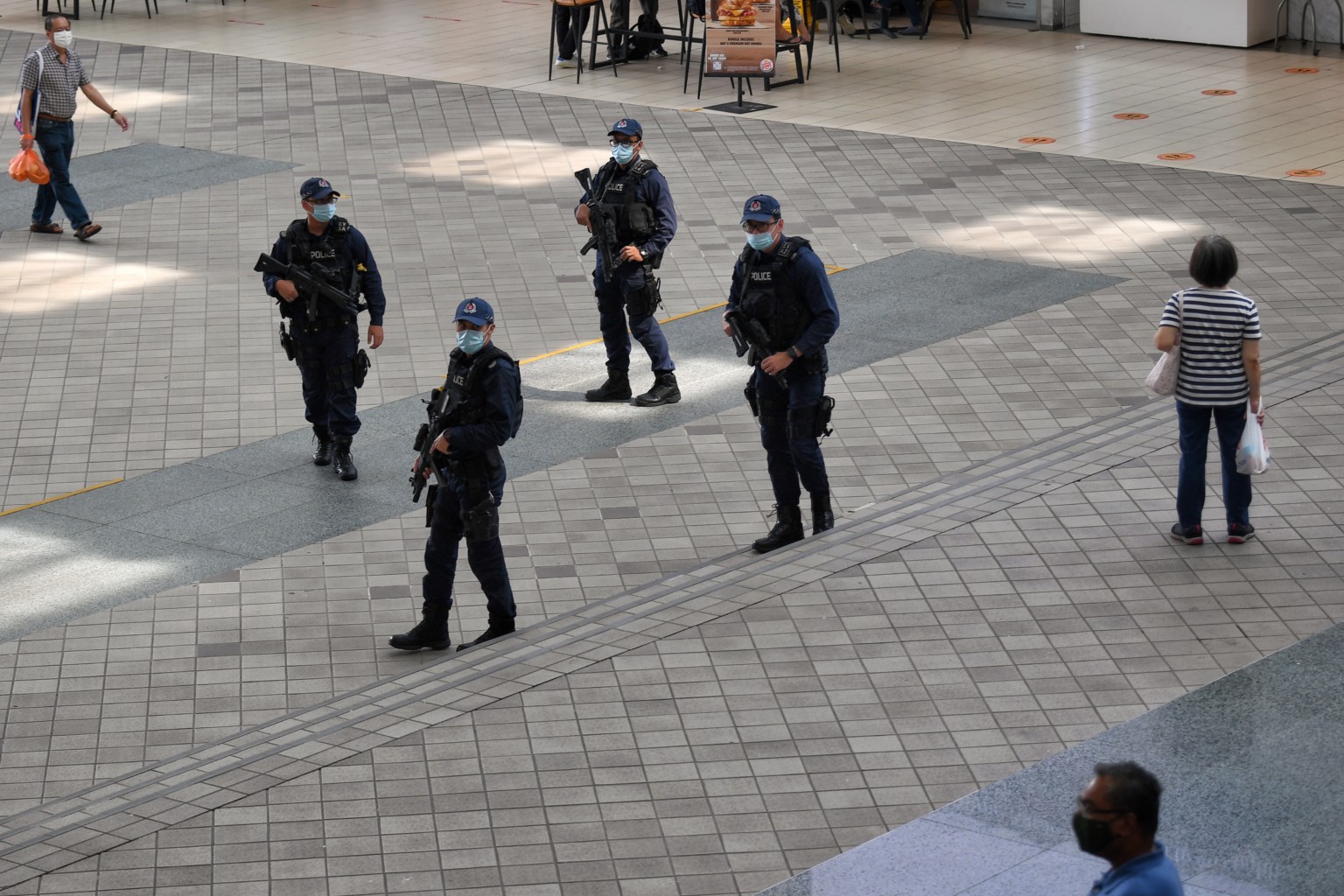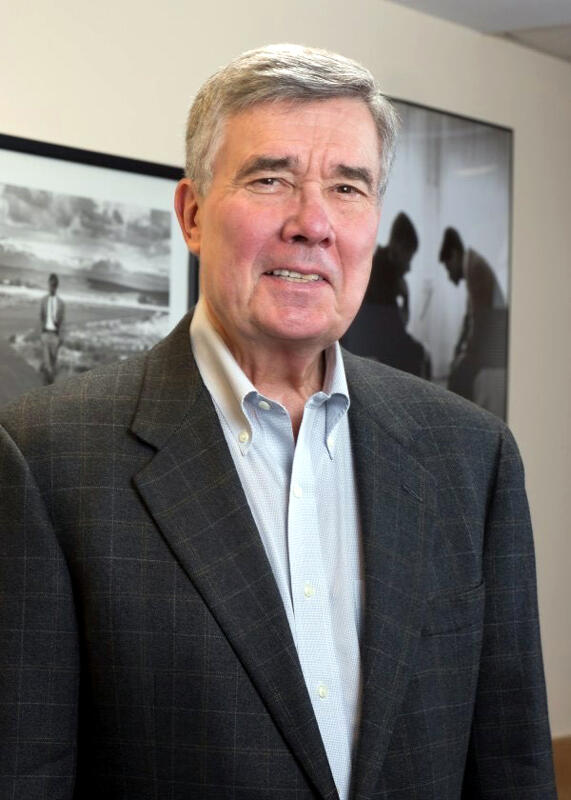Trust, transparency more vital now for law enforcement agencies: Former US top cop
Sign up now: Get ST's newsletters delivered to your inbox

Officers are encouraged to walk the ground and have face-to-face interaction with the public.
PHOTO: ST FILE
Follow topic:
SINGAPORE - With technology and social media greatly impacting our lives, trust and transparency still form the pillars of law enforcement, said Mr Gil Kerlikowske, a former commissioner of US Customs and Border Protection.
But failing to upkeep that trust can tarnish any police department's image and reputation, said Mr Kerlikowske, a guest speaker in a Zoom lecture to over 200 Home Team officers on March 1.
Mr Kerlikowske, 72, is also on the Home Team Academy (HTA) advisory panel and has 40 years of law enforcement experience.
HTA chief executive Anwar Abdullah said Mr Kerlikowske was invited to speak as HTA regularly organises talks by internationally renowned experts, in the fields of security and leadership, for Home Team leaders and officers.
In a Zoom interview with The Straits Times on March 2, Mr Kerlikowske said: "No matter how large that law enforcement agency is, if they don't have the trust and cooperation (of) the people that they serve, they are not going to be effective."
He had shared insights on how the role of law enforcement training instructors has progressed and how to build trust in law enforcement agencies by nurturing soft skills such as critical thinking, problem-solving and communications.
In the past, most police training focused on arrest procedures, the use of force and effective handcuffing, he said. Today, there is more emphasis on understanding someone else's point of view.
Especially when the environment has changed tremendously, he added, with young trainees joining law enforcement agencies.
"The environment has changed, both from the training viewpoint, and also with the demographics, the age and the understanding of the people coming into this business," Mr Kerlikowske said.
"How can you make sure there is collaboration between instructors that are older and the generation of students that are essentially younger?"
He said both groups should listen to each other and spend more time on the ground forging relationships with people other than their peers.
He added that younger officers need to tap the street smarts of their older instructors, and the latter must adapt to technology and not be afraid of it.

To Mr Kerlikowske, a former police chief of Seattle, trust is a two-way street.
Officers are encouraged to walk the ground and have face-to-face interaction with the public.
In Singapore, initiatives such as SGSecure, Citizens on Patrol and Road Safety Champions empower communities and bridge the gap between the police and citizens.
Mr Kerlikowske said whether in the US or in Singapore, there will be challenges faced by law enforcement agencies.
He said: "We are seeing older residents who may not be tech-savvy. The organisation can be high-tech but still requires interaction with residents.
"How do you synthesise the level of knowledge and information needed to communicate, especially at times with older populations that are not as tech-savvy?"
And sometimes, the bonds the police have with the community occasionally get tested.
In Singapore, two cases involving the police could have cast major doubts on police officers.
On Aug 3 last year, former Workers' Party MP Raeesah Khan lied that she had accompanied a sexual assault victim to a police station where officers allegedly handled the matter insensitively and drove the victim to tears.
On Nov 1, she apologised in Parliament to the Singapore Police Force and retracted an anecdote she had shared of the alleged incident. She then resigned from Parliament on Nov 30.
The second incident involved Ms Parti Liyani, a domestic helper acquitted on Sept 4, 2020, of stealing more than $30,000 worth of items from her employer in March 2019.
Two police officers - an investigation officer in the case and his supervisor - were fined for neglecting their duties, said Law and Home Affairs Minister K. Shanmugam last month in Parliament.
Said Mr Kerlikowske: "Whether officers are involved in something wrong, or whether someone else is the example, it is important for the police department to be open, honest and transparent about it."

